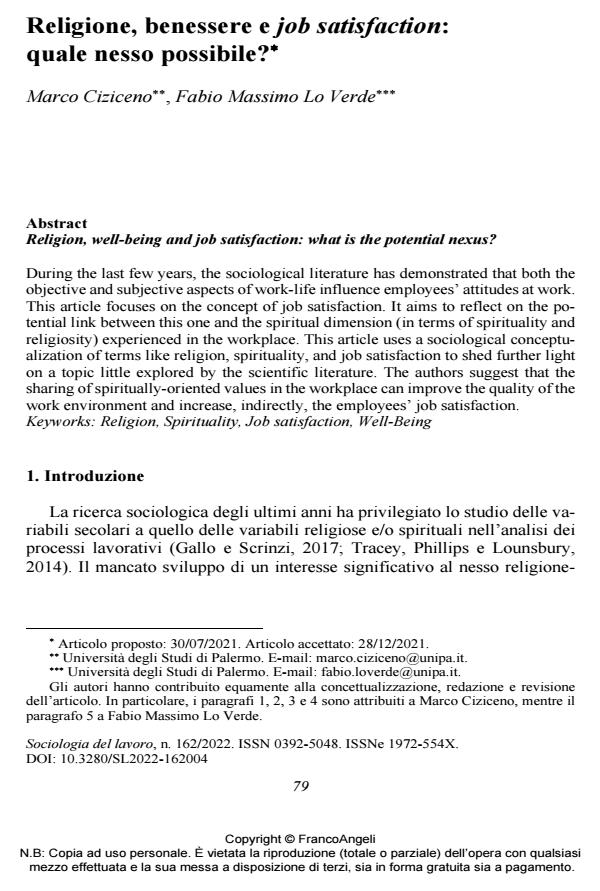Religion, well-being and job satisfaction: what is the potential nexus?
Journal title SOCIOLOGIA DEL LAVORO
Author/s Marco Ciziceno, Fabio Massimo Lo Verde
Publishing Year 2022 Issue 2022/162
Language Italian Pages 19 P. 79-97 File size 245 KB
DOI 10.3280/SL2022-162004
DOI is like a bar code for intellectual property: to have more infomation
click here
Below, you can see the article first page
If you want to buy this article in PDF format, you can do it, following the instructions to buy download credits

FrancoAngeli is member of Publishers International Linking Association, Inc (PILA), a not-for-profit association which run the CrossRef service enabling links to and from online scholarly content.
During the last few years, the sociological literature has demonstrated that both the objective and subjective aspects of work-life influence employees’ attitudes at work. This article focuses on the concept of job satisfaction. It aims to reflect on the potential link between this one and the spiritual dimension (in terms of spiritu-ality and religiosity) experienced in the workplace. This article uses a sociological conceptualization of terms like religion, spirituality, and job satisfaction to shed further light on a topic little explored by the scientific literature. The authors sug-gest that the sharing of spiritually-oriented values in the workplace can improve the quality of the work environment and increase, indirectly, the employees’ job satisfaction.
Keywords: Religion, Spirituality, Job satisfaction, Well-Being
Marco Ciziceno, Fabio Massimo Lo Verde, Religione, benessere e job satisfaction: quale nesso possibile? in "SOCIOLOGIA DEL LAVORO " 162/2022, pp 79-97, DOI: 10.3280/SL2022-162004